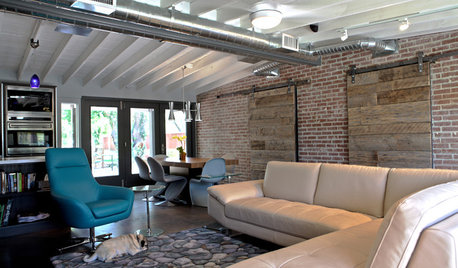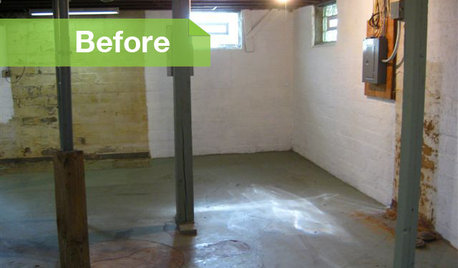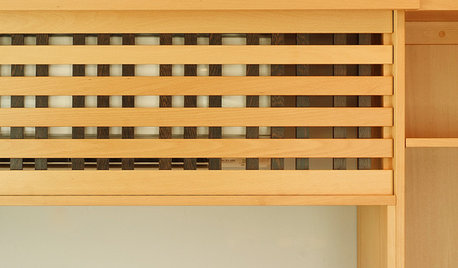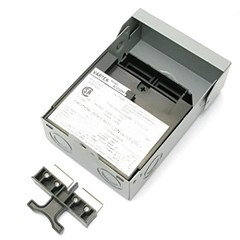Hvac and disconnect box?
Juan
6 years ago
Featured Answer
Sort by:Oldest
Comments (36)
ionized_gw
6 years agotigerdunes
6 years agolast modified: 6 years agoRelated Discussions
Opinions on a quote to replace two HVAC systems
Comments (7)Thanks for all the responses, I'll try to answer as many questions as possible. Tiger: Location is Atlanta, GA a note about the AC units, those are not heat pumps. Ryan: A load calc was not performed but was offered, before contract is signed I'll insit on one to confirm all of the sizing changes. I'll confirm the 5K unit is incorrect. As a starting point (lots of variables at play) we based the sizing on the current systems and their ability to keep up with demand. As a reference our current bills are about 150/mo in winter for gas and 150-200 in summer for elec. The current living space is 2600 sq ft with 8 ft ceilings, system 1 was sized to be able to handle an additional 1000 sq ft basement which will probably be finished in 1-2 years. Anticipation is that when we finish the basement we'll come back to reroute ductwork and zone it from the first floor. My though was to go ahead and get the proper size for the area, so after all is said and done there will be 3600 sq ft of living space. House was built in 86 and has not had any major changes to it so windows are all single pane and can be a bit drafty. I do not expect to replace windows in the future but do plan on sealing the house up more....See MoreHVAC fuse box
Comments (9)zl700. Our codes demand if you use a 14-2 or any black and white colors for 220 volts, which is common, the white wire MUST be taped black. blue for 440. Red for 660. I have found many 220 volt black and white wires. Just about got killed on a few and blew up a few volt meters. I found 660 volts on a roof top vent fan that was black and white. after i removed what was left of my volt meter and threw it off the roof i bought a new watch. The one i was wearing was kind of black and had skin stuck to it. We did find the contractor that did the install. They are now out of buisness and the electrician was facing criminal charges and code violations....See MoreHVAC quotes, really?
Comments (7)I'll try to answer your questions: I do not know the American Standard model number. Its a 4 ton heat pump with matching air handler at 15 seer. It is a variable speed the 803 thermostat we have an all electric house old unit working but the plenum is discintragated so its got a rug on it!!! forcing the air inside house instead of in the dang attic! new linesset new plenum and mastic seal (metal plenum) We are in the Dallas/Ft Worth area of TX. House is 26 years old, and approx 2100 sq feet. We have new windows, slab foundation We do not have to have heat pump - could have regular AC but the cost savings is much greater with heat pump. We have the AC on usually from April - Nov. That's a long hot summer. Hope I've answered the questions, thx for the help. Can't wait to see what you all think. I asked if we'd wait until fall would the price be any different - something I'd heard before. He said no - price is price, even though a hot attic isn't ideal to work in its their job....See MoreComplete HVAC system replacement in Dallas, TX area.
Comments (3)Did you ask the dealer why he quoted a 110K BTU furnace in the first quote, and a 90K BTU furnace in the second? I am going to assume he did not do a load calculation. I would think a 90K BTU furnace would be plenty for the Dallas winter, and you may be able to use a 70K BTU furnace. What is interesting is he gave a quote for low end and high end equipment only, but the price difference is only $1000. Are the prices correct? I would not recommend option 1. It is over priced and basically builder's grade equipment. On option 2 the Greenspeed 24VNA9 AC is pricey. Get quotes on the less efficient Infinity 24ANB7 and the more efficient 24ANB1 condensers. It would be interesting to see how the prices of these compare with the Greenspeed. The Dallas summers are long and hot. It makes sense to spend the money on a efficient AC condenser. You should also consider a high efficiency furnace. The winter design temperature for Dallas is 24 degrees. Not very cold, but cold enough to justify a more efficient furnace if the price is reasonable....See MoreAustin Air Companie
6 years agolast modified: 6 years agomike_home
6 years agotigerdunes
6 years agoPreferred Designing Services
6 years agoionized_gw
6 years agoPreferred Designing Services
6 years agoionized_gw
6 years agoionized_gw
6 years agoUser
6 years agolast modified: 6 years agoAustin Air Companie
6 years agotigerdunes
6 years agomike_home
6 years agoionized_gw
6 years agoPreferred Designing Services
6 years agoionized_gw
6 years agoUser
6 years agolast modified: 6 years agoUser
6 years agoionized_gw
6 years agolast modified: 6 years agoAustin Air Companie
6 years agolast modified: 6 years agoPreferred Designing Services
6 years agoionized_gw
6 years agoPreferred Designing Services
6 years agoUser
6 years agolast modified: 6 years agoAustin Air Companie
6 years agolast modified: 6 years agoPreferred Designing Services
6 years agoionized_gw
6 years agoAustin Air Companie
6 years agolast modified: 6 years agoionized_gw
6 years agoPreferred Designing Services
6 years agoAustin Air Companie
6 years agoAustin Air Companie
6 years agoPreferred Designing Services
6 years agoJ G
4 years ago
Related Stories

ARCHITECTUREHVAC Exposed! 20 Ideas for Daring Ductwork
Raise the roof with revealed ducts that let it all hang out — and open a world of new design possibilities
Full Story
WINE CELLARSRoom of the Day: Chilled Wine Box Makes a Fun Feature Wall
A narrow compartment of slate, glass, steel and cork adds surprise and utility to an open-plan room
Full Story
BASEMENTSBasement of the Week: Modern Style Converts an Empty Concrete Box
From raw wasteland to fab living, sleeping and storage space, this snazzy basement now covers all the angles
Full Story
DECORATING GUIDES10 Ways to Hide That Air Conditioner
Feeling boxed in designing around your mini-split air conditioner? Try one of these clever disguises and distractions
Full Story
LANDSCAPE DESIGN8 Ways to Bring Modern Design to Any Outdoor Space
Break out of the box with these creative ideas for contemporary plantings and hardscapes
Full Story
MOST POPULAR4 Obstacles to Decluttering — and How to Beat Them
Letting go can be hard, but it puts you more in control of your home's stuff and style. See if any of these notions are holding you back
Full Story
ACCESSORIESEveryday Home Must-Haves Beg for a Makeover
The Nest's much-improved take on the thermostat has us pondering reinventions of other necessities around the house
Full Story
LIFE10 Steps for Saying Goodbye to Sentimental Objects
Are keepsakes cluttering your space and your life? Consider this approach for letting go and moving on
Full Story
HOUZZ TOURSMy Houzz: Salvage Finds and DIY Love in Rhode Island
A Providence couple layers on meaningful mementos and hands-on style for a personalized interior palette
Full Story
DOWNSIZINGDouble Take: Disappearing Table Gives 1 Room 3 Uses
A secret in the media center turns a mom’s living room into an instant office or dining room
Full Story





mike_home